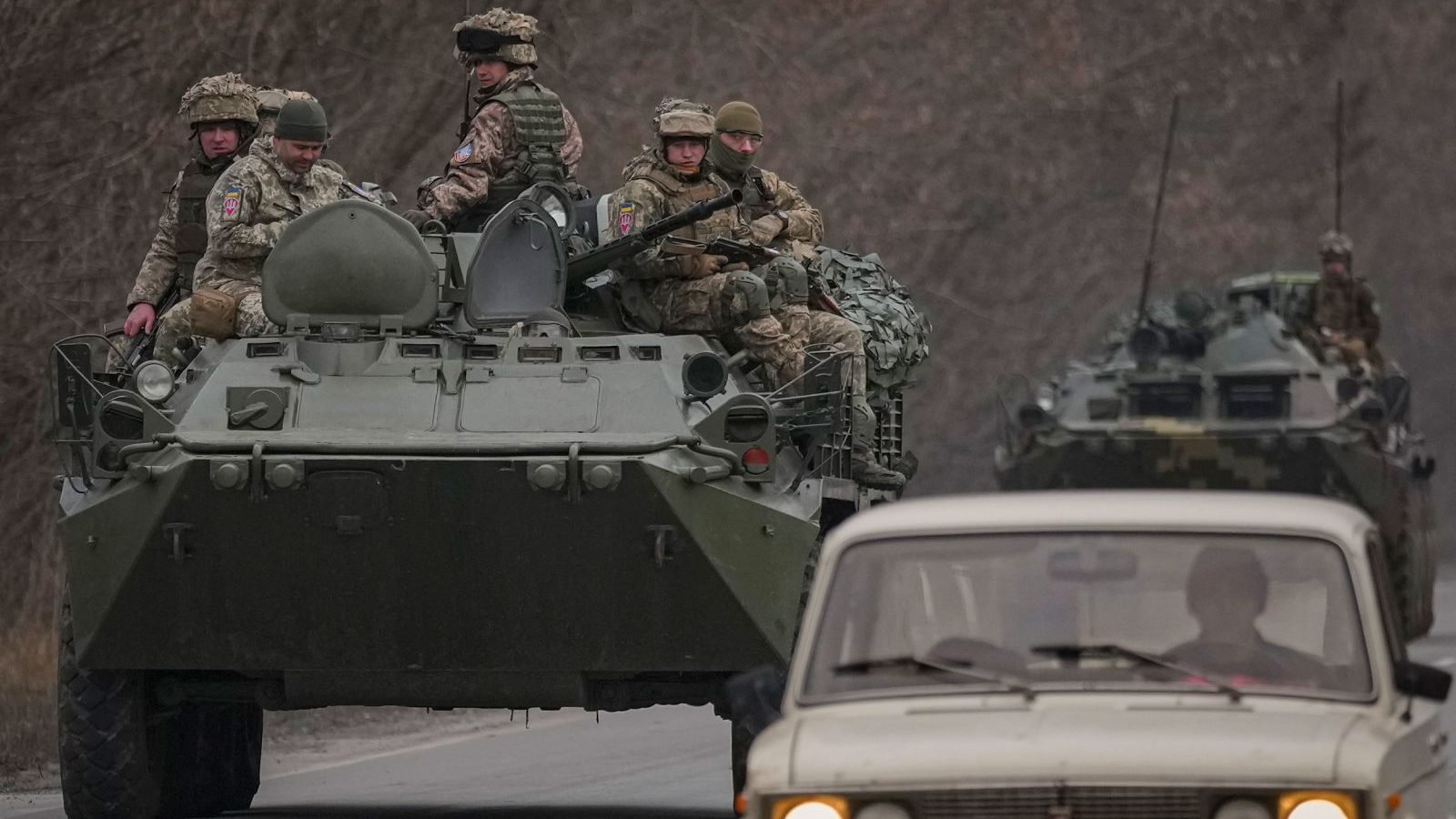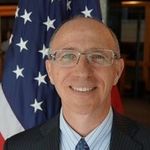Pardee School Faculty Comment on Russian Invasion of Ukraine

On February 24, 2022, Russian President Vladimir Putin announced that he has launched a “special military operation” in Ukraine. The announcement was expected by the United States and its allies, but it still reverberated across the world. U.S. President Joe Biden responded by announcing additional sanctions on Russia, and further retaliation may be forthcoming.
As this global security crisis continues to unfold, the Frederick S. Pardee School of Global Studies at Boston University asked its faculty of leading international affairs scholars and practitioners to share their thoughts on Ukraine. The faculty coffered comments on how they believe the leaders of Russia and the U.S. should act. Specifically, the faculty were asked “If you could, what advice would you give Presidents Biden and/or Putin on what to do in Ukraine? What can they do to mitigate this crisis?” Their responses are as follows:
 Thomas Berger, Professor of International Relations; Director, Center for the Study of Asia
Thomas Berger, Professor of International Relations; Director, Center for the Study of Asia
A strong and united alliance, including crucially U.S. allies in Europe, who between them represent over 20% of global GDP, is the most potent tool that the U.S. has in the intensifying struggle with the neoauthouritarina regimes of the 21st century. The U.S. should focus on strengthening and solidifying that alliance structure rather than engaging in geopolitical fantasies.
 Joseph Fewsmith, Professor of International Relations and Political Science
Joseph Fewsmith, Professor of International Relations and Political Science
“It is increasingly clear that the Russian invasion of Ukraine will put new strains on US-China relations. It’s clear that China will continue to side with Russia instead of the US, despite its professed desire to uphold the sovereignty of all nations. whether viewed from the perspective of China’s implicit support for Russia’s position on Ukraine or the impact on the Taiwan situation, it seems the US is in for an increasingly strained relationship with China.”
 Vesko Garčević, Professor of the Practice of International Relations
Vesko Garčević, Professor of the Practice of International Relations
“Even great chess players make mistakes. I would not say this action has not been carefully planned… I think for the long run, Russia, and particularly Russian citizens, will pay a steep price. Even if they have immediate gains—one may be to install a puppet government in Ukraine—for the long run, this may not be a right calculation. Because Russia should cooperate with the world and not live as a pariah in world affairs.”
 Paul Hare, Senior Lecturer
Paul Hare, Senior Lecturer
“I think it’s important that we hear clear condemnation from other major global players like China and India. They have enormous stakes in an international order which respects sovereign stakes and accepts that our common interest and dependence in a global economic and diplomatic system should outweigh territorial ambitions of any state. So If I were President Biden, I would call on China and India to reaffirm our common commitment to international law. China has close relations with Ukraine – they are a partner in Belt Road and China has several Confucius Institutes – a mark of their engagement with the country.”
 Robert Hefner, Professor of Anthropology and International Relations
Robert Hefner, Professor of Anthropology and International Relations
“Putin has made a strategic blunder of historic proportions. My advice to President Biden would be: stay the course with non-personnel military aid. But prepare for the long-term insurgency by Ukrainians to come, as Kiev falls and the democratic government flees to western Ukraine and, shortly thereafter, Poland or some other NATO country.”
 Igor Lukes, University Professor, Professor of International Relations and History
Igor Lukes, University Professor, Professor of International Relations and History
“The situation is dangerous. Russia has committed a massive force to seize a peaceful sovereign country that never presented any threat. This will trigger limited countermeasures by NATO. Diplomats and politicians of all nationalities—including Russia’s last plausible partner, China—had warned Putin not to use force. He dismissed their concerns. Launching this attack on Ukraine, he has irreparably damaged the post–Cold War order. Should Americans care? Yes, they should. This is not about Ukraine alone. This is about the future of democracies everywhere.”
 Vivien Schmidt, Jean Monnet Professor of European Integration; Professor of International Relations and Political Science
Vivien Schmidt, Jean Monnet Professor of European Integration; Professor of International Relations and Political Science
“Rather than advise either leader, I raise several questions. The first question is: Where will Putin stop? Next question: What is the west to do about the new reality? The post-Cold War world order is over. We are now in the process of devising a replacement. But Russia, unlike in the 1990s, is in a position of relative strength and it is a Russia that has decided to engage in 19th-century realpolitik instead of 21st-century internationalism.”
 Joshua Shifrinson, Associate Professor of International Relations
Joshua Shifrinson, Associate Professor of International Relations
“To Biden: remember that the risks of escalation – which may not be controllable – are very real. Proceed with extreme caution.”
 Mark C. Storella, Professor of the Practice of Diplomacy
Mark C. Storella, Professor of the Practice of Diplomacy
“Secretary Blinken famously told the Chinese in Anchorage that it is a mistake to bet against the United States. Putin bet against the United States and the NATO alliance. Effective American diplomacy has helped forge greater allied unity than Putin thought possible. Unity of the alliance is the cornerstone of any effective response. Biden knows that it will not be force of arms but force of diplomacy that will prevail against Putin and maintaining allied solidarity will have to be his highest priority.”
 Jack Weinstein, Professor of the Practice of International Security
Jack Weinstein, Professor of the Practice of International Security
“America should use every economic tool at our disposal, including removal from SWIFT, to stifle the Russian economy. Moreover, keep realigning and increasing U.S. and NATO forces to protect NATO’s Eastern and Southern flank. Additionally, the Department of Homeland Security and the Cybersecurity and Infrastructure Security Agency must protect America’s critical infrastructure from cyberattacks. Finally, U.S. combatant commanders must review all their Russian-centric operational plans to prepare for any contingency from the Russian Federation.”
 Joseph Wippl, Professor of the Practice of International Relations
Joseph Wippl, Professor of the Practice of International Relations
“Russian President Putin has decided to achieve his political objective of a Ukrainian satellite state through a military attack on Ukraine. His justifications, such as de-Nazification of Ukraine, are outrageous. He has isolated himself and his country. Now is the time for the West to put on serious sanctions and to be patient and steadfast. It is not time to get mad, it is time to get even.”
 John D. Woodward, Jr., Professor of the Practice of International Relations
John D. Woodward, Jr., Professor of the Practice of International Relations
“Vladimir Putin is an unreconstructed Cold Warrior who wishes to restore the Russian/Soviet Empire and to crush Western democracy. When you are trying to determine Putin’s intent, just ask yourself: “What would Stalin do?” Except Stalin didn’t have access to offensive cyber operations and modern nuclear weapons.”
 Min Ye, Associate Professor of International Relations
Min Ye, Associate Professor of International Relations
“A great strategist should never allow situations to deteriorate to the point of the imminent breakout of major wars. Unfortunately, it is too late to prevent the Ukraine crisis, and it is imperative to find a way to stop World War III in Europe. The leaders need to move expeditiously and involve multiple stakeholders to negotiate a way out, while applying harsh sanctions and military deterrence to motivate peace talks.”